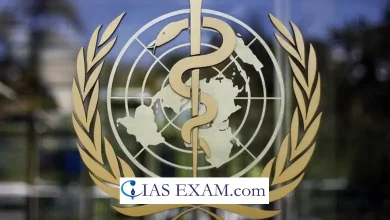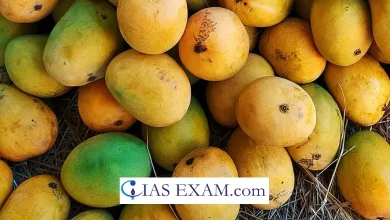Daily Current Affairs for UPSC
India Norway Maritime Cooperation
Topic- International Relations [GS Paper-2]
Context- Recently, the 8th Norway-India Joint Working Group Maritime meeting has been held in Mumbai, India.
Key Highlights
- The joint discussion was held on the use of alternative fuels like green ammonia and hydrogen for futuristic shipping.
- The Norwegian Green Shipping Programme has been successful and the experience and expertise of the programme was shared in the meeting.
Green Voyage 2050
- India and Norway are also part of the Green Voyage 2050 project.
- Both of the nations agreed on willingness, devotion, partnership and capacity building for achieving common goals.
Hongkong Convention for Recycling of Ships
- India is a signatory member to Hongkong Convention for Recycling of Ships.
- Hence in the meeting, India requested that European Union regulation should not hinder recycling of non-European countries which are compliant as per International Convention.
- Norway was also requested not to prolong Ship recycling to India as a lot of investment has been made by Indian recyclers.
Maritime ShEO conference
- The Norwegian delegation will take part in the INMARCO, the Green Shipping Conclave, and the Maritime ShEO conference.
- The Maritime ShEO conference is supported by Norway and it is focused on maritime diversity and sustainability, including gender equality in the maritime industry.
- Norway has the technical expertise in Maritime sector, whereas India has huge potential for development of Maritime sector and large pool of trained seafarers, which make both countries natural complementary partners.
- Earlier, India had also prepared Maritime India Vision 2030, which has identified more than 150 initiatives across various maritime sectors such as ports, shipping and waterways focusing on capacity augmentation etc.
Maritime India Vision 2030
- Maritime India Vision (MIV) 2030 is a ten-year blueprint for the maritime sector released by the Prime Minister of India at the Maritime India Summit held in November 2020.
- MIV 2030 has been formulated by consulting with over 350+ public and private sector stakeholders, comprising ports, shipyards, inland waterways, trade bodies and associations, national and international industry and legal experts.
- MIV 2030 is particularly based on 10 themes covering all the facets of the Indian maritime sector and is a comprehensive effort to define and meet national maritime objectives. Those 10 themes are
- Develop best-in-class Port infrastructure.
- Drive Exchange to Exchange Logistics Efficiency and Cost Competitiveness.
- Enhance Logistics Efficiency through Technology and Innovation.
- Strengthen Policy and Institutional Framework to Support all Stakeholders.
- Enhance Global Share in Ship Building, Repair and Recycling.
- Enhance Cargo and Passenger Movement through Inland Waterways.
- Promote Ocean, Coastal and River Cruise Sector.
- Enhance India’s Global stature and Maritime Co-operation.
- Lead the World in Safe, Sustainable & Green Maritime Sector.
- Become Top Seafaring Nation with World Class Education, Research & Training.
Key Targets 2030
- Three Major Ports with more than 300 Million Ton Per Annum (MTPA) cargo handling capacity will be built.
- More than 75% of Indian cargo transshipment to be handled by Indian ports.
- More than 85% of cargo handled at Major Ports by Public Private Partnership or by other operators.
- Average vessel turnaround time (containers) should be less than 20 hours.
- Global ranking of India in Top 10 in ship building and ship repair.
- More than 15 Lakh annual cruise passengers.
- More than 60% share of renewable energy at Major Ports of the country.





.png)



